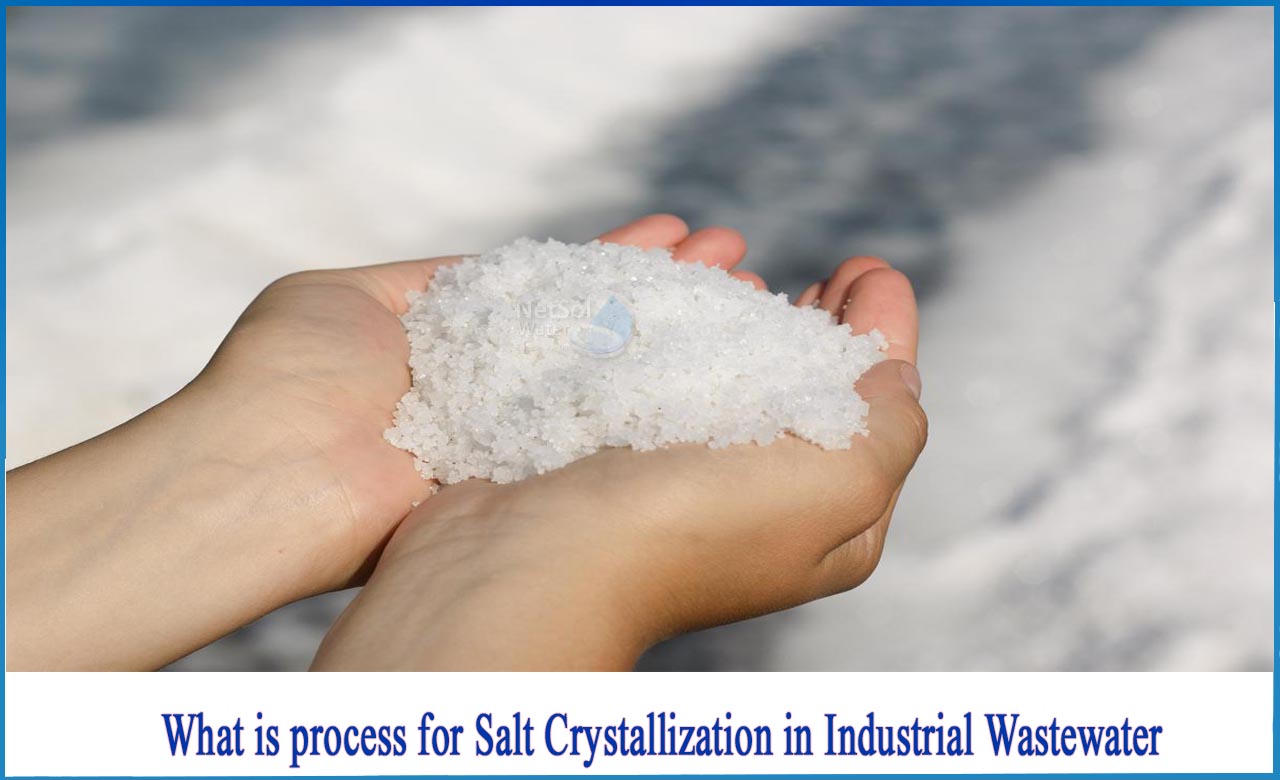What is Crystallization?
Crystallization is a separation procedure that involves the formation of a solid (either a crystal or a precipitate) from a homogeneous, liquid, or gaseous phase. It is also utilized in industry as a purification procedure since the solids generated can be exceedingly pure. In the treatment of industrial wastewater, salt crystallization, also known as brine treatment, is a frequent method. The solution must be supersaturated in order for crystallization to take place. In terms of how supersaturation is achieved, these methods differ from one another.
How is supersaturation achieved?
1: Cooling the solution with little evaporation results in supersaturation.
2: It is also achieved by evaporating the solvent with little cooling.
3: Evaporation by a mix of adiabatic and cooling evaporation (vacuum crystallizers).
What is process for Salt crystallization in Industrial Wastewater?
The production of solid crystals inside the liquid is the most essential stage of the crystallization process. The solution is concentrated and chilled until the solute concentration exceeds the solubility at this temperature, at which point the solute crystallizes almost completely.
The crystallization speed is the rate at which a crystal grows. Growth begins with the development of the nucleus, which subsequently expands over time. Nucleation, or the creation of nuclei, occurs naturally, spontaneously, and swiftly when the concentration exceeds supersaturation.
The following empirical equation can be used to express crystallization speed:
Where,
B: nucleation speed (nuclei formed per unit of time and solvent volume);
N: number of nuclei formed per unit of solvent volume;
t: time;
k: empirical parameter;
(C-C*): supersaturation;
C: concentration of solute in the solution.
The nucleation speed is a direct effect of supersaturation, according to the equation. When supersaturation is high, nucleation and crystal growth speeds are also fast, resulting in tiny, defective crystals containing impurities. When supersaturation is low, however, crystal formation is slow and crystal growth is regular, resulting in large, very pure crystals.
Steps of salt crystallization
The nucleation and development of crystals are the two main steps of crystallization. Both processes take place in the supersaturated area of the graph if the conditions are favorable.
Nucleation necessitates a higher level of supersaturation than development. The unstable zone is where the nucleus forms, whereas the metastable zone is where the nucleus grows. For nucleation, the solution must reach the unstable zone. However, once there, the nuclei will expand too fast, resulting in a large number of tiny crystals. The number of nuclei generated must be managed in order to form the biggest and cleanest crystals possible. The nucleus can only be generated through homogeneous nucleation if the solution contains no contaminants or crystals of the same kind.
Conclusion
Crystallization has a wide range of industrial uses, although producing pure crystals isn't usually the primary goal. The crystallization process is frequently of interest as part of a larger treatment of liquid effluents. The main goal in this scenario is to separate the contamination in an effluent from the solvent in order to recover the pure solvent and the pollution in solid form, allowing for cost-effective handling. For example, in zero-waste operations, it is used to separate the effluent into two streams: one for relatively clean solvent that may be reused, and the other for contaminants in a solid or semi-solid condition.
What do we offer?
Netsol Water is the solution to all your water and wastewater treatment needs. We personalize each equipment to provide our customers with greater efficiency and longevity than any other wastewater equipment manufacturer. Our goal is to make the world's waste management systems more affordable, sustainable, and energy-efficient in order to address the problems of population growth, industrial expansion, and climate change.
For further assistance or product-purchase related query,
Call on +91-9650608473;
Or write us at enquiry@netsolwater.com



